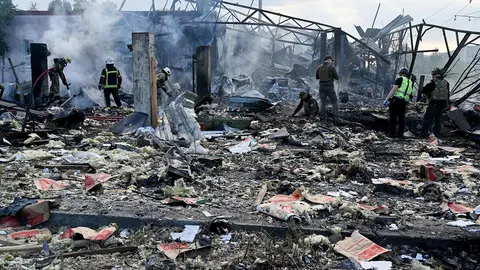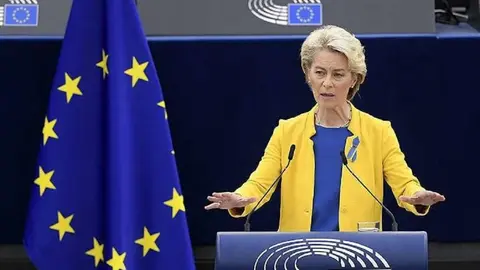Spain: a problem

It is well known that the world is going through a period of profound geopolitical change, driven by new configurations in the exercise of power, the consequences of which are unknown. The geopolitical position of a state is not chosen. It depends on its geographical location, the choices made by the other states around it, and the impact of both on such important issues as demographic, trade and energy flows.
In this sense, geography delimits the windows of opportunity, as well as a large part of the risks that each state must assume. To this end, governments must exercise their sovereignty through strategy, understood as the way in which they will use the components of political power to achieve national interests. The strength of the state and the cohesion of its constituent elements are essential for its survival.
Currently, the wars in Ukraine and Gaza are shaping scenarios in Europe and the MENA area that, by interconnecting their effects, activate an area of high-risk international tensions. The Ukrainian war is at an impasse, as the results of the famous summer "counteroffensive" have not brought the expected advantages for Ukrainian forces, while the Kremlin's strategy of attrition is favourable to Moscow. The Ukrainian elections scheduled for March seem to be creating problems for Zelensky, who has reacted by replacing important military commanders.
The Gaza war, with the permanent long shadow of Iranian intervention, the US naval aircraft deployment, the tension in the Sahel, together with the geopolitical instability in North Africa, form a permanent crisis zone. Europe, once again, demonstrates its strategic dependence on the United States through NATO, while the EU flees forward with debatable expansion plans and resounding disagreements such as that over aid to Gaza. To this scenario must be added the prominence of Ankara, which oscillates with respect to Jerusalem, flirts with Moscow and, from NATO, aspires to control the Mediterranean, all driven by a neo-Ottomanism that seeks horizons beyond Anatolia.
As if all this were not enough, Spain is entering a very worrying phase of its long internal crisis, this time triggered by the election results of 23 July. Seen from the outside, the situation may seem inexplicable from the point of view of a supposedly democratic country, integrated into Europe since 1985, even if its leading role has been manifestly improvable.
The return to power of the constitutional left, after the bloody attack of 14-M in 2004, opened an era in which Spain was plunged into international irrelevance. Foreign policy went "off" at the same time as national sovereignty was cut off by the creation of diplomatic offices in some autonomous communities, which constituted unnecessary vulnerabilities to national security, while some autonomous police assumed a panoply of competences that are not regulated by the former.
The present situation, the "investiture syndrome", or the use of an amnesty, not contemplated by the Spanish Constitution, to win the votes of a party whose leaders were convicted of sedition and other crimes, is taking place in the midst of a European geopolitical crisis.
If one were to resort to a hospital parody, one would note that the Spanish state was placed under intensive surveillance and the diagnosis process took place. The first results point to a lack of "strategic culture" that produces an "acute introversion", as the flow of power energy is reversed and, instead of acting as an international actor, it creates a metastasis of political idiocy that is contagious and destructive. This is the syndrome of an "ideologised democracy". It would be a case of an EU member, in this case Spain, basing its democracy on the legislative interpretation of the executive power in office.
The approval of the amnesty law will produce an alteration of constitutional normality in Spain, which would have strategic consequences for Europe, as the Iberian peninsula is a geopolitical pivot of the first order, with repercussions for the European peninsula, the Mediterranean and North Africa. The lack of strategic culture prevents Spaniards from being aware of the constraints imposed on them and the advantages offered by their geopolitical reality. Spain's external action has not been guided by these considerations. Its accession to the Atlantic Alliance and the European Community should have been linked to the incorporation of Spanish interests in both organisations. The problem is that Spaniards were not aware of them, and are still not aware of them.
In the present times, a Spain in crisis becomes a major vulnerability for the West, as it would be an easy target for its enemies by noisily displaying its weakness. In the present circumstances, we should bear in mind Raymond Aron's analysis of Max Weber's work when he points out that "democracies are perpetually threatened by the decadence brought about by the anonymity of the powers that be, the mediocrity of the leaders and the passivity of the spiritless masses".




